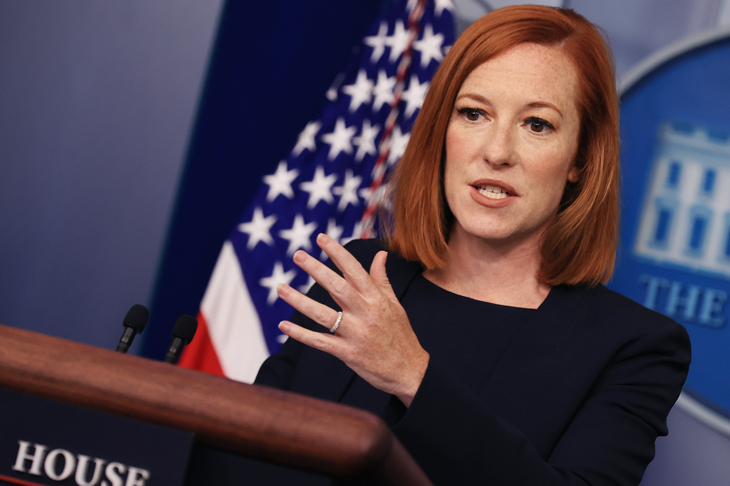I would vote for any party that promised either to privatise the ABC or to make it a subscription service, one like Sky News Australia where those who want to watch it have to reach into their own pockets and pay.
We have had Coalition governments for over eight years now. In that time they’ve appointed all the ABC managing directors and board chairmen. Nothing changes. Still not a single, solitary TV presenter or producer who is an identifiable conservative. Half the population pays taxes to fund a billion-dollar national broadcaster that despises them and that acts like the PR arm of the Greens and Labor. But of course Team ScoMo does absolutely nothing, other than make even more useless appointments than the last time.
And that takes me to a just-released Gallup Poll in the US. Gallup, no conservative pollster, asked Americans if they had a ‘great deal’ or ‘quite a lot’ of confidence in a cross-section of institutions and occupations. They combined the percentages for both the ‘great deal’ and ‘quite a lot’ categories or answers. Few Speccie readers will be surprised that Members of Congress (here that equates to MPs in Canberra) came dead last in the poll. They were the least trusted group in the US scoring a measly twelve per cent of Americans with either sort of confidence in them. Know who came second last? TV news. It scored sixteen per cent confidence. (By the way, that drops to six per cent for Republicans who answered the poll.) Newspapers scored 21 per cent, barely over a fifth.
These are appallingly low, but warranted, scores. Remember, almost no press outlets would run the story of what was on Hunter Biden’s laptop before the US election. If it had been Donald Trump’s son with the same incriminating disclosures it would have been front page news every day right up to the election. Today’s journalistic class is not made up of honest brokers.
By the way, some other scores from this poll are: big business 18 per cent confidence in it; public schools 32 per cent (a precipitous fall over past polls); the US Supreme Court 36 per cent (again, by historical standards this is a stunning drop and shows what happens when top judges become so overtly and obviously politicised, as they also did in Britain over Brexit); the police 51 per cent; the military 69 per cent; and at the top with the best score, small business at 70 per cent.
Now I’d be surprised if answers in Australia were much different than those in the US. The press here is every bit as one-sided as in the US – during Covid it has become the fear porn arm of government with almost zero sceptical questioning and probing of premiers, ministers or jumped-up public health officials. Meanwhile big business is so woke and so keen on rent-seeking that it is probably more popular with Labor supporters these days than it is with conservatives.
Staying in the US, readers who get their news from the ABC or the commercial TV news may not have seen President Biden’s press secretary Jen Psaki (Lord knows, Joe never fronts the press himself) say that ‘we’re flagging problematic posts for Facebook that spread disinformation’. What? That sounds an awful lot like the Democrats advising Big Tech on whom to censor, cancel and shadow ban. Psaki also argued that if one social media player banned someone they all should. Easy to say when only conservatives are ever banned. Right now, former President Trump is banned by Twitter and Facebook while the President of Iran, the Chinese politburo and whole scores of Islamic hate preachers are not.
Too bad they didn’t ask about Big Tech in the above poll, isn’t it? In an attempt to do something about Big Tech’s one-sided censoriousness, President Trump recently filed a class action lawsuit against them. Now normally in the US all rights in the Bill of Rights operate vertically, or top down. Citizens’ speech, for example, is protected against most limits imposed by government. Private citizens and corporations, by contrast, are mostly free to do and limit as they please. But what happens when the big end of town, and especially Big Tech, seems only to limit the speech of those on one side of the political aisle? That’s what this Trump lawsuit may test. I have no idea what sort of arguments his lawyers may run. Ideas I’ve seen include: 1) arguing Big Tech is like the phone company was and hence subject to ‘common carrier’ restrictions (i.e., that the phone company has to let everyone use its service, not just political allies); 2) trying to rely on a few old precedents related to company towns – think back to towns built by big mining companies or by big chocolate producers like Hershey’s only for their employees. The courts did not allow these companies free rein to limit the speech rights of its employees housed in these company towns; or 3) running some sort of anti-trust argument, that these are de facto monopolies. Of course it’s way too early to know how this pans out but consider this an early heads-up. This could turn out to be a really big case that shifts US free speech law in a way we haven’t seen since Sullivan v. NY Times.
Certainly any disinterested observer of Big Tech’s banning policies knows there’s a problem; one Jen Psaki inadvertently made even clearer (see above).
And only last weekend a federal appeals court in New York agreed to hear a case on the s.230 provision that gives Big Tech immunity in censorship cases – that treats it as a platform not a publisher. If that goes, Big Tech is firetrucked.
Let me finish by pointing out the latest idiocy of the Black Lives Matter organisation in the US. It issued a statement condemning the US government’s treatment of Cuba while supporting the Cuban government over all the democracy protesters there. BLM, readers, is and always has been an overtly Marxist organisation. It’s against the nuclear family; against capitalism; against funding the police; and supports policies that actually hurt black Americans (and indeed all Americans). It was BLM that pushed the ‘taking the knee’ movement. If English soccer stars or Australian cricket players (not so many star cricketers these days, are there?) take a knee – whether they know it, or more likely do not – they are adopting a gesture with BLM roots. That seems to me to amount to endorsing BLM. Now I know that the vast preponderance of sporting stars are not the sharpest tools in the shed. But don’t take the knee! With that gesture you’re supporting a group that doesn’t even support pro-democracy protesters in Cuba. That makes you a moron in my book.
Got something to add? Join the discussion and comment below.
Get 10 issues for just $10
Subscribe to The Spectator Australia today for the next 10 magazine issues, plus full online access, for just $10.
You might disagree with half of it, but you’ll enjoy reading all of it. Try your first month for free, then just $2 a week for the remainder of your first year.












Comments
Don't miss out
Join the conversation with other Spectator Australia readers. Subscribe to leave a comment.
SUBSCRIBEAlready a subscriber? Log in